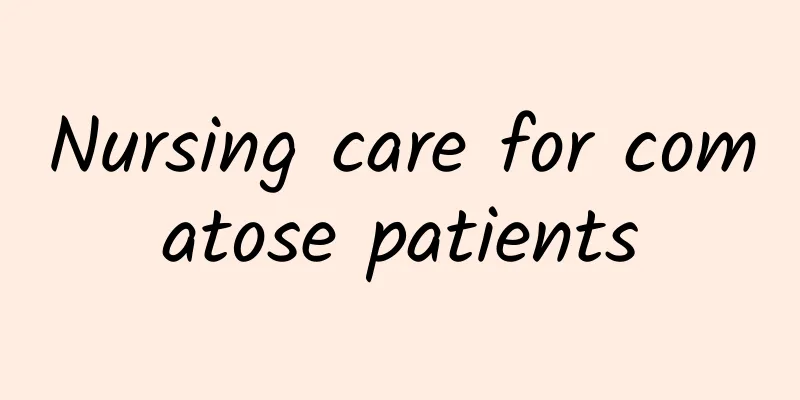What are the symptoms of headache?

|
Headaches bring a lot of troubles. First of all, headaches will affect people's normal work. Headaches will also cause dizziness and make people feel sleepy and want to rest. Headaches also have many symptoms, such as dizziness, black spots in front of the eyes, red and swollen eyes, and confusion in the head. This will have a great impact on daily life. Everyone has relevant knowledge and understanding of some of the symptoms of headaches. 1. Onset: Acute onset with fever is often caused by infectious diseases. Acute headache that persists without abating and is accompanied by varying degrees of impaired consciousness without fever suggests intracranial vascular disease (such as subarachnoid hemorrhage). Long-term recurring headaches or throbbing headaches are mostly vascular headaches (such as migraines) or neurosis. Chronic progressive headaches accompanied by symptoms of increased intracranial pressure (such as vomiting, bradycardia, optic disc edema) should be noted as indicating intracranial space-occupying lesions. Chronic headache in young and middle-aged people, but without intracranial enlargement, often occurs due to anxiety and emotional tension, and is mostly muscle contraction headache (or tension headache). 2. Headache location. Finding out whether the headache is unilateral, bilateral, frontal or occipital, local or diffuse, intracranial or extracranial is of great value in diagnosing the cause. Migraine and cluster headaches are mostly on one side. The headache caused by intracranial lesions is often deep and diffuse. The location of the headache caused by deep intracranial lesions is not necessarily consistent with the location of the lesion, but the pain often radiates to the same side as the lesion. Headaches caused by high blood pressure often occur in the forehead or the entire head. Headache caused by systemic or intracranial infectious diseases is mostly pain in the whole head. Subarachnoid hemorrhage or meningitis may cause neck pain in addition to headache. Ocular headaches are superficial and localized to the orbit, forehead, or temporal areas. Rhinogenic or odontogenic pain is also mostly superficial. 3. The degree and nature of headache. The degree of headache is generally divided into mild, moderate and severe, but it has no parallel relationship with the severity of the disease. The pain of trigeminal neuralgia, migraine and meningeal irritation is the most severe. The pain from a brain tumor is usually moderate or mild. Headaches caused by hypertensive, vascular and febrile diseases are often pulsating. Sometimes neurological headaches are also quite severe. Neuralgia often presents as electric shock-like pain or tingling pain, while muscle contraction headaches often present as a feeling of heavy pressure, tightness or clamping pain. 4. The time and duration of headache. Some headaches may occur at specific times. For example, intracranial space-occupying lesions often worsen in the early morning. Sinusitis headaches also often occur in the early morning or morning, cluster headaches often occur at night, migraines in women are often related to menstruation, and headaches caused by brain tumors are mostly persistent, with varying lengths of relief periods. 5. Factors that aggravate, relieve or stimulate headaches: Coughing, sneezing, shaking head, and bending over can aggravate intracranial hypertension headaches, vascular headaches, intracranial infection headaches, and brain tumor headaches. Cluster headaches are relieved by standing upright. Headaches caused by acute inflammation of the cervical muscles may be aggravated by neck movements; headaches caused by chronic or occupational cervical muscle spasms may be gradually relieved by activities and massage of the cervical muscles. Through the content introduced above, everyone should have a certain understanding of the manifestations of headache symptoms. I hope that friends can take this disease seriously and seek medical attention immediately when it occurs. |
<<: What are the symptoms of headache?
>>: What medicine should I take for nipple pain
Recommend
Tips on how to deal with itchy scalp
Itchy scalp is quite common in life. There are ma...
Effect of drinking Laoxianghuang soaked in water
Bergamot has a fragrant smell, is rich in nutrien...
The efficacy and function of Quisqualis chinensis
Combretaceae is the dried and perfect fruit of th...
Hand, foot and mouth nail loss
Hand, foot and mouth disease is a relatively comm...
What are the medicines for replenishing qi and blood?
If a person has qi deficiency, the whole body wil...
How do women maintain their ovaries? What is the best food to maintain ovaries?
The ovaries are one of the most important organs ...
What diseases can agarwood cure?
Agarwood is a traditional Chinese medicinal mater...
Drugs for treating aplastic anemia
Generally, damaged cells are not easy to repair. ...
What is a cold with stuffy nose and runny eyes?
Everyone should be familiar with the disease of c...
Can Panax notoginseng powder and Ganoderma lucidum spore powder be taken together?
Ganoderma lucidum spore powder and Panax notogins...
What is the principle of cupping for weight loss?
When the body is very fat, the first thing that i...
Will salt hot compress be effective for lumbar disc herniation?
Nowadays, more and more people are suffering from...
Fracture surgery process
If the fracture is serious, timely surgical treat...
Primary symptoms of migratory rheumatism
It is currently difficult to find a treatment met...
What are the methods for treating vascular malformations?
The state of blood vessels is a very important fo...









